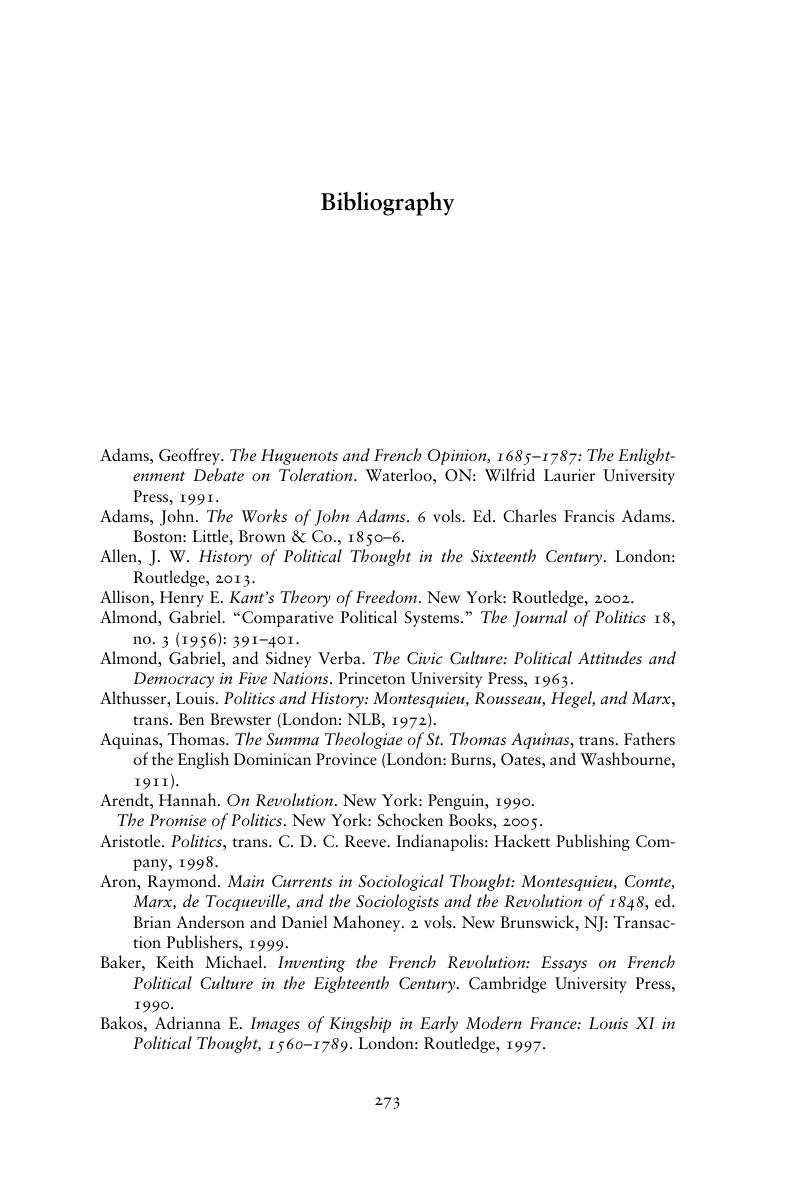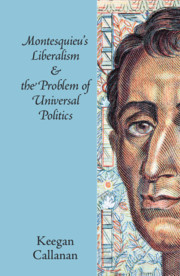Book contents
- Montesquieu’s Liberalism and the Problem of Universal Politics
- Montesquieu’s Liberalism and the Problem of Universal Politics
- Copyright page
- Dedication
- Contents
- Acknowledgments
- Abbreviations
- Introduction
- 1 Montesquieu and Classical Particularism
- 2 Montesquieu and Humanist Constitutionalism
- 3 Regime Pluralism
- 4 Understanding Liberal Culture
- 5 Religion, Secularism, and Liberal Society
- 6 “The Spirit of Tolerance and Gentleness”
- 7 Political Change and the Psychology of Liberty
- Conclusion
- Bibliography
- Index
- References
Bibliography
Published online by Cambridge University Press: 10 August 2018
- Montesquieu’s Liberalism and the Problem of Universal Politics
- Montesquieu’s Liberalism and the Problem of Universal Politics
- Copyright page
- Dedication
- Contents
- Acknowledgments
- Abbreviations
- Introduction
- 1 Montesquieu and Classical Particularism
- 2 Montesquieu and Humanist Constitutionalism
- 3 Regime Pluralism
- 4 Understanding Liberal Culture
- 5 Religion, Secularism, and Liberal Society
- 6 “The Spirit of Tolerance and Gentleness”
- 7 Political Change and the Psychology of Liberty
- Conclusion
- Bibliography
- Index
- References
Summary

- Type
- Chapter
- Information
- Montesquieu's Liberalism and the Problem of Universal Politics , pp. 273 - 296Publisher: Cambridge University PressPrint publication year: 2018



